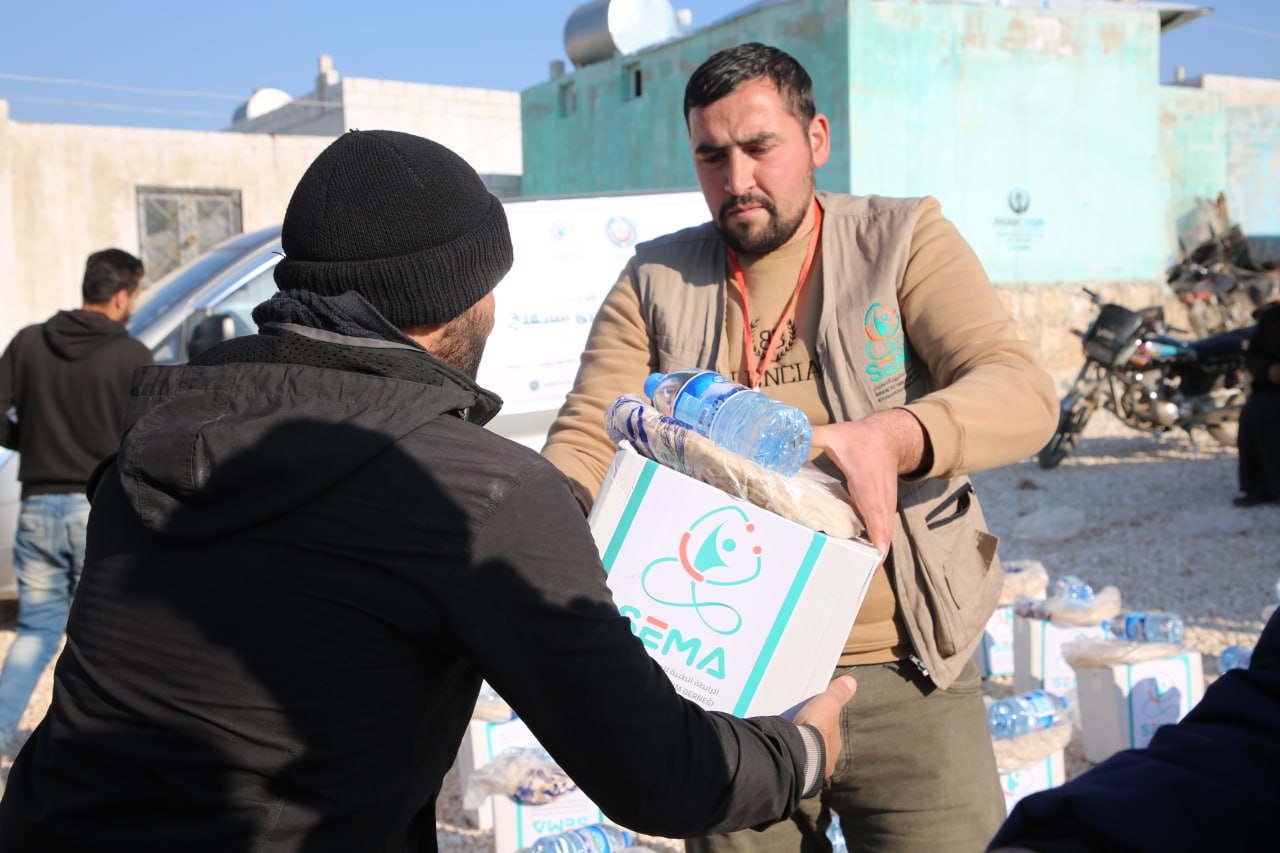The right to food security is a basic human right that should be secured for all people around the world. Poverty, scarcity of water for irrigation, and climate change are some of the factors that lead to food insecurity.
In this article we will explain the issue of food insecurity and SEMA’s contributions to address the issue, especially in Syrian refugee communities.
Definition of food security
According to the 1996 World Food Summit, food security could be defined as people’s constant physical and economic access to food.
This food should meet people’s nutritional and dietary needs and food preferences in order for them to lead healthy lives.
To state it more clearly, food security involves access to quality, nutritious food that is essential for human existence.
Such access to food is imperative for economic growth and the creation of job opportunities which lead to the effective reduction of poverty rates.
Components of food security
There are mainly 4 aspects related to food security, which are
- The availability of food: This includes the continuous supply of food, its production and the stock levels that determine it.
- The economic and physical accessibility to food: The concerns of insufficient food levels at national and international arenas have pushed toward changes in policies, incomes, markets, and prices.
- Food utilization: This usually refers to the ability of this food to supply individuals with the necessary nutrients and energy. This could be further achieved through good feeding and food preparation practices.
- The stability of the above aspects over time: This refers to the constant supply of food at all times, meaning that if at any given time food supply could be halted due to weather conditions, economic or political instability, and other factors, individuals could be defined as food insecure. In other words, if people at a certain place or time are risking the absence of their nutritional needs they are defined as food insecure.

The link between food insecurity and poverty
Poverty contributes enormously to the inadequacy of food sources and food insecurity. This is because poverty erodes the fundamental human rights to access adequate food, housing, clean water, health services, and more.
According to USDA’s Economic Research Service, in 2022, the number of food-insecure people is estimated at 1.3 billion, an increase of 118.7 million people (10%) from 2021.
This is where social protection comes into play because it is a key factor in the realization of the right to adequate food sources for all people everywhere, anytime.
In addition, social protection programs are effective in the eradication of hunger and poverty.
This could be achieved by giving people access to sources of food, clean water, housing, and medical services, among other things.
Ensuring food security for all: Challenges and solutions
The right to adequate food is a basic universal human right. Yet, with all the efforts made to eliminate hunger around the world, hunger, and undernourishment affect as many as 690 million people worldwide (2019), which accounts for 8.9 percent of the world population.
Hunger and food insecurity can have adverse economic effects on the livelihoods and economic abilities of vulnerable populations.
Such effects include loss of productivity, well-being, and health, reduced learning abilities, and hampering the realization of human potential.
The key challenges concerning food security involve the increasing challenges to agricultural production across many countries.
This could be related to many factors including
- The gradual eradication of natural resources.
- Severe weather conditions.
- Globalization.
- Urbanization.
- Market concentration.
- Higher and volatile food prices have slowed the progress of eliminating food insecurity.
To tackle such a global issue, effective measures should be taken into consideration.
These include the following:
- The implementation of effective policies and the allocation of adequate resources necessary for the eradication of food insecurity and poverty.
- Setting appropriate governance mechanisms at regional and national levels. The Committee on World Food Security (CFS) provides an effective platform to deal with food security. At national and regional levels, various programs and policies concerning food security should be designed.
- Enhancing and strengthening accountability and monitoring measures across all phases of different programs and policies.

Support SEMA’s efforts to eliminate food insecurity
Your donation will help SEMA NGO’s efforts to eradicate poverty, hunger, and food insecurity.
Your generous donations will save the lives of vulnerable Syrian refugees everywhere, especially children and women.
Our effective measures include the following:
- Raising donations and channeling them towards the generation of effective welfare programs to provide vulnerable populations with their basic rights from food, water, medical supplies, and shelter to mention a few.
- Working alongside the authorities to develop work opportunities that would provide poor communities with decent sources of income and reduce unemployment rates.
- Establishing food assistance programs to help low-income families and address their nutritional needs by providing food stamps for example.
FAQ
What is food security?
Food security refers to the constant access to food sources for people anytime and anywhere. It has to do with meeting the nutritional and dietary needs of people in order to lead a healthy life.
What are the 3 components of food security?
Food availability.
Food accessibility.
Food utilization.
What is the importance of food security?
The accessibility to nutritious, sufficient food sources is a fundamental human right for all people. Food security concerns economic multiple key factors including stability, well-being, health, and women’s empowerment, to mention a few.
What factors affect food security?
Factors that affect food security include the following:
Global warming and climate change.
Scarcity of lands for agriculture.
Poverty.
Insufficient water supply for irrigation.
Technological challenges.
How can we improve food security?
There are several measures that should be put in place to improve food security, such as:
Combating climate change.
Diversifying sources of income and improving economic growth.
Developing infrastructure and facilities.
Establishing fair trading practices.


